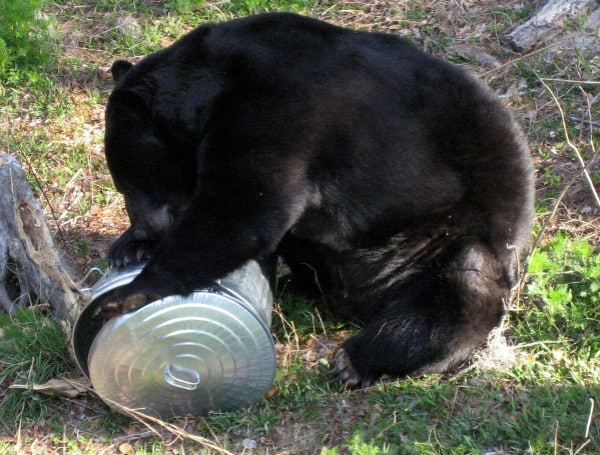The Florida Fish and Wildlife Conservation Commission (FWC) has concluded its initial investigation, confirming the first recorded fatal Florida black bear attack in the state’s history. The tragic incident occurred this week in Jerome, a community in Collier County.
On Monday morning, May 5, the Collier County Sheriff’s Office alerted FWC staff to a potential fatal wildlife encounter. Family members of 89-year-old Robert Markel had reported him missing from his residence, noting signs of recent disturbances around the property that suggested the presence of bears. FWC law enforcement and bear management personnel immediately responded to secure the area, prioritize public safety, gather information, and initiate protocols for the lethal removal of any bears suspected of involvement.
READ: Black Bear Attack Marks Somber First In Florida History, Highlights Complex Coexistence
The remains of Mr. Markel were discovered approximately 100 yards from his home. Investigators documented several critical findings at the scene: evidence of a physical altercation between a bear and a person near the residence, a dog recently killed by a bear in close proximity to a person, and indications that a bear had entered the victim’s home. The precise sequence of events leading to the fatal encounter remains under investigation by the Collier County Medical Examiner, who has indicated that preliminary findings are consistent with injuries inflicted by a black bear.
Following FWC’s Human-Bear Conflict Response Policies and Guidelines, which mandate lethal removal in situations involving physical encounters, a dog killed by a bear near a person, or a bear entering a residence, three adult male bears were lethally removed between Monday evening and early Tuesday morning. The bears weighed 207, 263, and 434 pounds. An attempt to trap a fourth bear was unsuccessful, but DNA evidence was collected.
The carcasses of the three bears were transported to laboratories in Gainesville for necropsy and testing, along with DNA samples collected from the scene. On Friday, May 9, DNA results positively identified the presence of the 263-pound male bear’s DNA on Mr. Markel, inside his residence, and on the deceased dog. The only bear DNA found at the scene matched the three bears that were lethally removed. All three bears tested negative for rabies.
READ: Wake Up, Florida! Bears Emerging from Dens, Time To Be BearWise®
Necropsy results further revealed that the 263-pound male bear contained partial human remains identified as belonging to Mr. Markel.
FWC law enforcement and bear management staff maintained constant contact with the family and were present near the property from Monday through Friday. During this time, only one additional bear was observed briefly in the area late Thursday night before it left. Law enforcement and bear management personnel will remain in the area throughout the weekend.
“We want to thank the family for their cooperation as they navigate this challenging time, and our thoughts remain with them,” said FWC Chairman Rodney Barreto. “I am proud of our staff’s professional response and support for the family as they faced an unfathomable event this week.”
Jerome is located within the South Bear Management Unit, which has the third-largest bear population in Florida, estimated at 1,044 in 2015. Demographic analysis suggests this population is experiencing a positive annual growth rate. Notably, the FWC received 16 bear-related calls within a 10-mile radius of nearby Copeland between May 5, 2024, and May 4, 2025, leading to five site visits, five capture efforts, the relocation and hazing of three bears, and the humane killing of one bear.
READ: AAA Warns Florida Drivers: Exercise Extreme Caution As Stormy Weather Looms
While incidents of wild black bears injuring people in Florida are rare, the FWC emphasizes that people have been bitten and scratched, often when cubs, food sources, or dogs are present.
The agency receives an average of 6,300 bear-related calls annually and has documented 42 prior incidents of physical contact between wild black bears and people since the 1970s, with three resulting in serious injuries before this tragic event.
Please make a small donation to the Tampa Free Press to help sustain independent journalism. Your contribution enables us to continue delivering high-quality, local, and national news coverage.
Connect with us: Follow the Tampa Free Press on Facebook and Twitter for breaking news and updates.
Sign up: Subscribe to our free newsletter for a curated selection of top stories delivered straight to your inbox.
